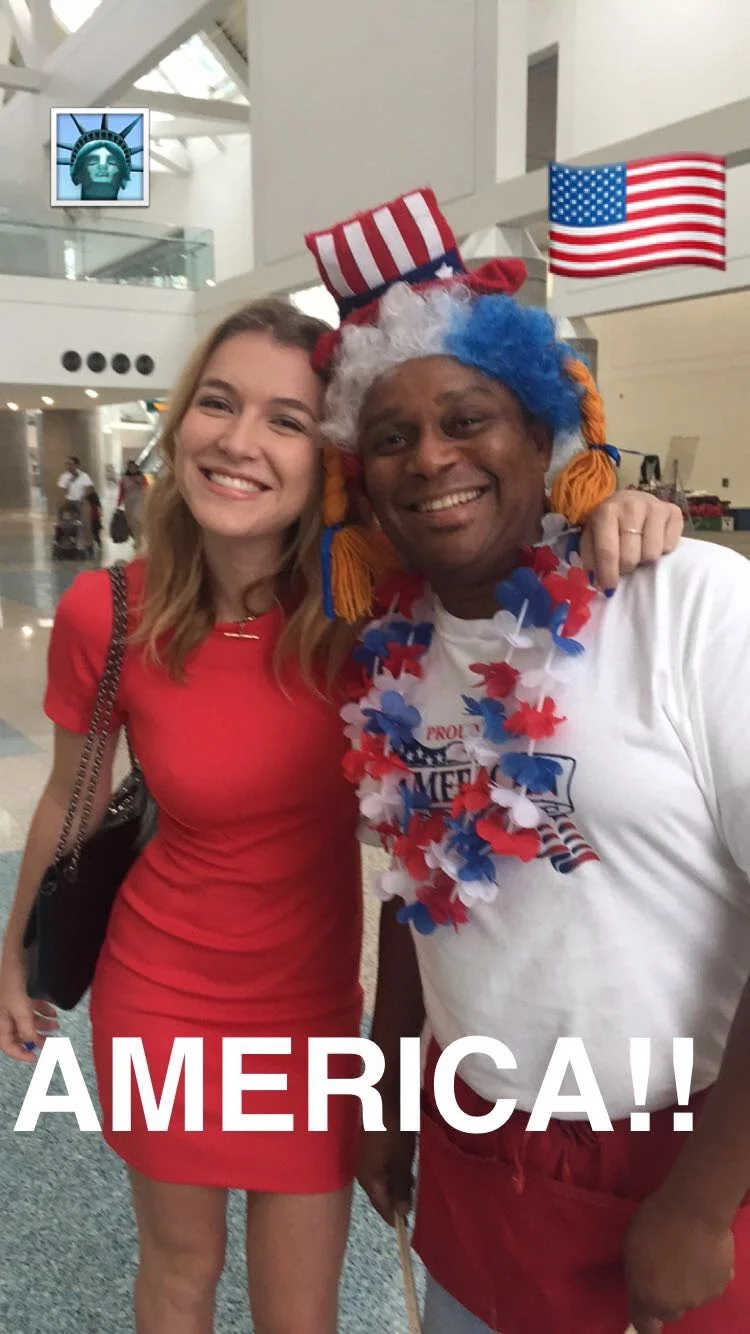Trump's "Go Back" Tweets Are Textbook Racism, There Is No Other Way To Put It.
I’ve spent the last few days unraveling my emotions after President Trump’s latest barrage of racist tweets, when he told American Congresswomen to “go back” to the countries they came from. I knew I would write this article, that I had to say something, but I was angry and hurt and sad and I wanted to take some time to process my thoughts before I shared them. When the tweets were fired I was sitting at my dining room table with my boyfriend, whose parents emigrated here from Vietnam in the 1970s, and our friend, whose parents emigrated here from India in the 1980s. They were both born in California. They are more American than I am. But I doubt the President would tell me to “go back where I came from” because I look like his daughter. The four Congresswomen he attacked, my boyfriend and my friend, do not.
I’ve been closely following the debate that has ensued. I felt angry and disgusted to see some leaders defend these outrageous words. Many are exploiting the fact that he did not directly refer to race in order to construct their own narrative and deny the inherent racism of the President’s message. But make no mistake, this is racism, plain and simple. To argue otherwise is to deny that there are countless, often invisible but very real, forms this virus takes to infect our society. The fact is that the President of the United States told American citizens of color, 3 out of 4 of whom were born in this country and have never known any other home, all of whom proudly serve their country, to “go back” to the countries they came from. He made an assumption that they are not American and do not belong here based on the color of their skin. This is textbook definition racism and any meaningful response must begin with acknowledging that.
I was pleased to see that The House passed a resolution condemning the tweets as racist. This matters because the official defining of this language as racist, the individual votes of Congress members and Congress’s official stance in rejection of the President and in support of “immigrants and their descendants” are all now codified on permanent record. But that is not enough. There is still so much more that needs to be done to build a more equitable America.
I remember the day when I became an American citizen. It was 2015, I had lived in the US for 19 years. At my naturalization ceremony there were more than 100 countries and 70-something languages represented. It was electrifying to be in that room with hundreds of people from all around the world, all of us united through this process and our pride for this country. I’m not going to get into what immigrants mean to this country (I would hope that goes without saying), but I will say that the people I met there on that day were some of the most patriotic Americans I had ever encountered. We cannot normalize these attacks on immigrants and people of color. We cannot allow for those who want to take us back to the dark ages and repaint America in their vision to feel emboldened. We have to defend our brothers and sisters because an attack on one is an attack on all.
This man waits outside the auditorium at the oath ceremonies in downtown LA to greet new citizens and hand out American flags and trinkets. He doesn’t need to be there, he chooses to donate his time this way. He brings a smile to so many peoples faces and the sense of community and warmth and love was contagious. Thank you sir, whoever you are, for making my day. I will always remember you.
Here are some things that you can do:
Keep talking about it. Don’t let this die out with the news cycle. Talk about these hard issues with others, especially those that you may not agree with. We desperately need to fix civic dialogue in this country and that starts with communication.
Educate yourself on the history of racism in America. The fact that so many people argue that because Trump didn’t specifically refer to race in his tweets his comments can’t be considered racist shows that we have a lot to learn. Ibram Kendi, director of the Antiracist Research and Policy Center at American University, explains why this is so wrong in an article that is really worth reading, saying “You don’t have to have racial language in an idea or even in a policy for it to be racist. It’s about what it’s outcome is.” It’s important to study history to understand how certain policies and systemic racism have had long lasting impacts on millions of citizens in our country in order to tear these structures down and build new, more equitable ones. Here is a list of books that cover the topic of race in America.
Get Active. Find a local group that empowers local communities and supports issues that you care about. Go to city events, concerts, town halls, food festivals, poetry readings, anything that gets your more engaged with your community. Change starts locally. It doesn’t even have to be political in nature. Just getting involved and making an effort to meet people outside of your bubble makes a difference.
March and Protest. Japanese internment camp survivors recently protested outside of an army base and former internment camp at Fort Sill, Oklahoma, where migrant children will likely soon be housed, setting an example of how people can show up and speak out.
Donate. You can donate money to the American Civil Liberties Union. Donate household goods to immigrants and refugees here. If you want to get creative, here are some fundraising ideas. Get your friends together, make it fun.
Call Your Representatives. Call on Congress to support legislation like the current Shut Down Child Prison Camps Act and Families Not Facilities Act. Or tell your senators and representatives to stop giving increased funds to the government agencies responsible for the rise in detentions.
The moments before my citizenship oath ceremony.


